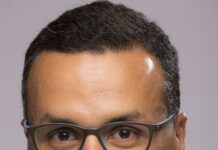On May 2nd, UW’s president and vice chancellor Vivek Goel was invested into the Order of Canada at Rideau Hall by the Governor General of Canada, Mary Simon. This investment was originally announced back in December 2020 by the Governor General at that time, Julia Payette, to recognize Dr. Goel’s contributions to Canadian society. Specifically, the disseminated citation highlighted his role in developing Public Health Ontario following the 2003 SARS outbreak and his work in promoting public health and health services research in Ontario and Canada.
The announcement comes as no surprise, given Goel’s long and illustrious career. Having originally obtained his medical degree from McGill university, he completed post-graduate training in Community Medicine at the University of Toronto and began his early career as a general practitioner. However, he did not stay in this role long before shifting his focus towards public health. “It’s very gratifying to see individual patients and help them with whatever conditions or issues that they have,” Goel said, “[but] I personally felt that I could have a much better impact…in public health…where [I] can work with the entire population, or with communities, and try to keep [them] as healthy as possible.” Following this pivot, he then began getting involved with research and education. At a certain point, he had another shift in perspective: “while I could work on individual graduate students or with small groups of undergraduate students, if I worked at the level of the entire institution I could… have an impact on many more students, and many more research programs.”
This transition from working at an individual level to a collective level is what Goel says prepared him for his academic leadership roles as vice-president at the University of Toronto and as president and vice-chancellor at the University of Waterloo. He mentions his work in public health being heavily focused on influencing public policy and developing new legislation, which required him to work and engage with diverse sets of people living in the community. Having to work with large volumes of data from different sources in his research also taught Goel how to analyze, interpret, and present his findings to other people to ensure informed decision making, a process he says is crucial in his role now. “If you’re going to be involved in academic leadership… you got to work with the whole community… we have faculty, we have alumni, we have staff… municipal governments, regional governments, and so on… I think I’ve been able to bring those kinds of skills [from my time in public health] into my academic leadership roles as well.”
When asked about how he sees the university contributing more to national initiatives, Goel emphasizes Waterloo’s strong community and population health focus and its globally recognized work in gerontology and helping people to age in place. He looks forward to helping tie those areas in with more traditional areas that Waterloo is known for: engineering, technology, and computer science. In particular, he highlights the emergence of a new field called “social robotics” that many Waterloo researchers have helped found. “It’s not like the kind of robots you see in movies, but [ones] that can help people with their everyday life… and support them when they’re isolated and lonely.”
As a parting message for all students aspiring to make a positive impact in their communities and beyond, Goel says that the most important part is to be engaged and be part of your community so you can understand what the issues are. It’s not just about wanting to build robots, but what and who are we building the robots for as well. “I would encourage [everyone], if you’re interested in doing that sort of thing, get out there and visit people in the community and see what their needs are. And then let’s create solutions that meet [those] needs.”





























